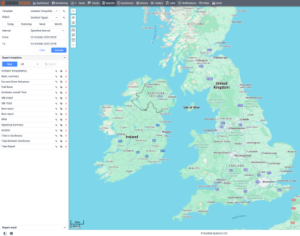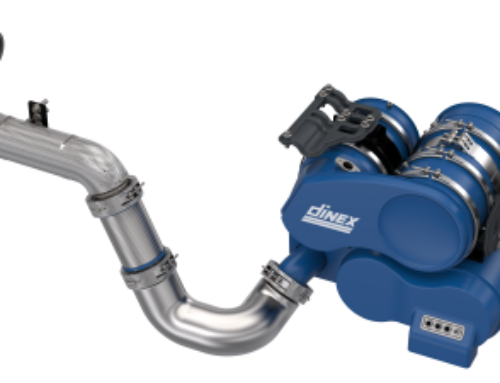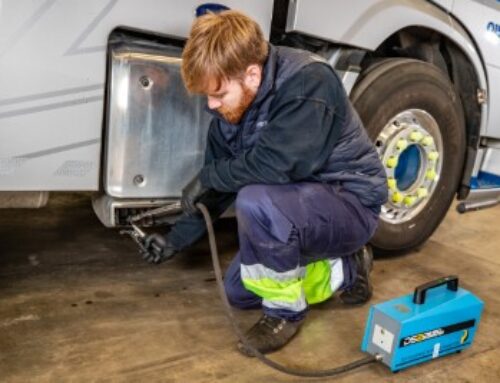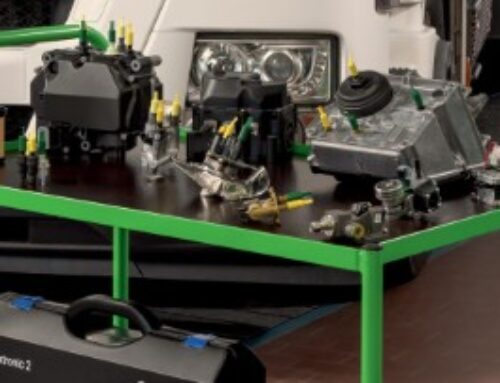Sentinel Systems: which UK city might adopt DVS next?

If DVS schemes are introduced elsewhere in the UK, the impact on fleets will be significant, says Sentinel, whose product portfolio includes the Fleet View telematics platform (pictured)
Sentinel Systems, the safety equipment provider, has addressed the possibility of whether schemes similar to London’s Direct Vision Standard (DVS) might be introduced elsewhere in the UK.
“As the UK pushes for safer and more efficient transport in its urban centres, London’s DVS has set a strong precedent,” said Sentinel Systems.
“With the updated Progressive Safe System (PSS) requirements now in force, many in the commercial vehicle industry are asking the same question: Which city could be next?
“It’s a question worth paying close attention to, because if DVS or similar safety standards are rolled out to more parts of the country, the impact on fleet operations will be significant.”
Greater Manchester is one possible contender, says the company.
“Greater Manchester has shown the clearest signs of following London’s lead when it comes to HGV safety. The region has been considering its own version of a DVS-like system as part of its Vision Zero Strategy and Action Plan – a commitment to eliminating road deaths and serious injuries – introduced on 29 November 2024.
“Although Manchester recently scrapped plans for a charging Clean Air Zone (CAZ), replacing it with an £86 million investment-led approach, safety remains high on the agenda. With this shift in focus, city leaders may choose to double down on HGV safety technologies, such as those required by DVS.”
Rather than charging non-compliant vehicles, Greater Manchester could adopt a supportive strategy, Sentinel Systems suggests – investing in infrastructure, education, and incentives to help fleet operators meet safety expectations – but it adds that, as with all of this speculation, nothing is certain.
Both Bristol and Birmingham are heavily focused on sustainable, safe transport, the company adds, and are working to reduce road danger through Vision Zero-aligned plans.
“Bristol has a well-developed transport strategy centred around walking, cycling, and public transport – all modes that place vulnerable road users in closer proximity to HGVs. The city’s commitment to reducing collisions makes DVS-style measures a logical next step, especially for vehicles operating in the city centre.
“Meanwhile, Birmingham’s long-term development strategy supports cleaner and safer transport, with significant changes already underway to reduce car dependency.”
Although no DVS plans have been confirmed, Birmingham’s Road Harm Reduction Strategy, introduced in March 2025, follows an approach built around four key principles, as stated by the city council:
“People make mistakes and misbehave. This can lead to collisions.
“The human body has a limited physical ability to tolerate collision forces before harm occurs.
“Responsibility for safety on our roads is shared. Those who design, build, manage and use roads and vehicles and those who provide post-crash care all have a part to play.
“All parts of the system must be strengthened so that if one part of the system fails, all road users are still protected.”
In all these cities, the core issues are the same, says Sentinel: protecting vulnerable road users, reducing blind spot incidents, and making urban freight safer.
“Whether the DVS name is used or a local variation is developed, the reality is that more cities are recognising the value of vehicle-based safety tech.
“Fleet operators working across multiple regions should take a proactive approach. As safety standards tighten, especially in cities committed to Vision Zero, there’s likely to be growing pressure to adopt systems that improve driver visibility and reduce the risk of collisions.
“At Sentinel Systems, we help operators take the guesswork out of compliance. Whether you’re staying on track with DVS and PSS in London or want to stay ahead of the curve in cities like Manchester, Birmingham, or Bristol, we’ve got you covered.”
The company’s Progressive Safe System packages include advanced camera and radar sensor systems to eliminate blind spots, audible warnings to protect pedestrians and cyclists, expert installation and retrofitting to existing DVS setups, and full support to ensure fleets meet current and future safety standards.













